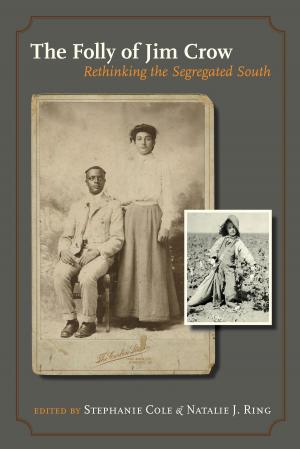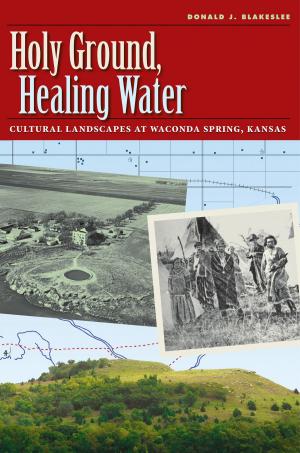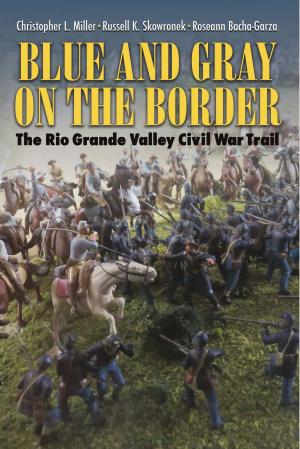Harsh Country, Hard Times
Clayton Wheat Williams and the Transformation of the Trans-Pecos
Business & Finance, Business Reference, Corporate History, Nonfiction, History, Americas, United States, Biography & Memoir| Author: | Janet Williams Pollard, Louis Gwin | ISBN: | 9781603444798 |
| Publisher: | Texas A&M University Press | Publication: | September 1, 2011 |
| Imprint: | Texas A&M University Press | Language: | English |
| Author: | Janet Williams Pollard, Louis Gwin |
| ISBN: | 9781603444798 |
| Publisher: | Texas A&M University Press |
| Publication: | September 1, 2011 |
| Imprint: | Texas A&M University Press |
| Language: | English |
Clayton Wheat Williams—West Texas oilman, rancher, civic leader, veteran of the Great War, and avocational historian—was a risk taker, who both reflected and molded the history of his region. His life spanned a dynamic period in Texas history when automobiles replaced horse-drawn wagons, electricity replaced steam power in the oilfields, and barren and virtually worthless ranch land became valuable for the oil and gas under its surface.
The setting for Williams’s story, like that of his father before him, is Fort Stockton in the rugged Trans-Pecos region of Texas. As a youngster accompanying his father on surveying trips through the land, and subsequently as a cadet at Texas A&M, he developed a toughness that served him well in France and Flanders. His letters home provide an unusually nuanced picture of what life was like for an American officer in Europe during the Great War.
After the war, he returned home, where he taught himself petroleum geology—so effectively that he picked the site of what would become in 1928 the deepest producing oil well in the world. With his brother, he mapped the structure of what later became the Fort Stockton oil and gas field, and he went on to hammer out a successful career in the boom and bust cycles of the West Texas oil industry.
On the civic front, Williams served for fourteen years as a Pecos County commissioner, and he held offices in a number of social and civic organizations. Imbued with a deep love for the history of his region, he wrote (with the editorial help of historian Ernest Wallace at Texas Tech University) Texas’ Last Frontier: Fort Stockton and the Trans-Pecos, 1861–1895, published by Texas A&M University Press in 1982. Nonetheless, by some of his neighbors he may be best remembered for his role in drying up the town’s famous Comanche Springs by pumping water feeding the spring’s aquifer to irrigate his and others’ farms west of town.
Williams left behind a treasure trove of letters, personal papers and writings, and interviews with his family, helping document in rich detail the history of an unforgiving land as well as what life was like during a pivotal period of American history. These materials, which form the core of the present manuscript, reveal a life that made a difference in the economy and history of the region and the nation at large.
Clayton Wheat Williams—West Texas oilman, rancher, civic leader, veteran of the Great War, and avocational historian—was a risk taker, who both reflected and molded the history of his region. His life spanned a dynamic period in Texas history when automobiles replaced horse-drawn wagons, electricity replaced steam power in the oilfields, and barren and virtually worthless ranch land became valuable for the oil and gas under its surface.
The setting for Williams’s story, like that of his father before him, is Fort Stockton in the rugged Trans-Pecos region of Texas. As a youngster accompanying his father on surveying trips through the land, and subsequently as a cadet at Texas A&M, he developed a toughness that served him well in France and Flanders. His letters home provide an unusually nuanced picture of what life was like for an American officer in Europe during the Great War.
After the war, he returned home, where he taught himself petroleum geology—so effectively that he picked the site of what would become in 1928 the deepest producing oil well in the world. With his brother, he mapped the structure of what later became the Fort Stockton oil and gas field, and he went on to hammer out a successful career in the boom and bust cycles of the West Texas oil industry.
On the civic front, Williams served for fourteen years as a Pecos County commissioner, and he held offices in a number of social and civic organizations. Imbued with a deep love for the history of his region, he wrote (with the editorial help of historian Ernest Wallace at Texas Tech University) Texas’ Last Frontier: Fort Stockton and the Trans-Pecos, 1861–1895, published by Texas A&M University Press in 1982. Nonetheless, by some of his neighbors he may be best remembered for his role in drying up the town’s famous Comanche Springs by pumping water feeding the spring’s aquifer to irrigate his and others’ farms west of town.
Williams left behind a treasure trove of letters, personal papers and writings, and interviews with his family, helping document in rich detail the history of an unforgiving land as well as what life was like during a pivotal period of American history. These materials, which form the core of the present manuscript, reveal a life that made a difference in the economy and history of the region and the nation at large.















